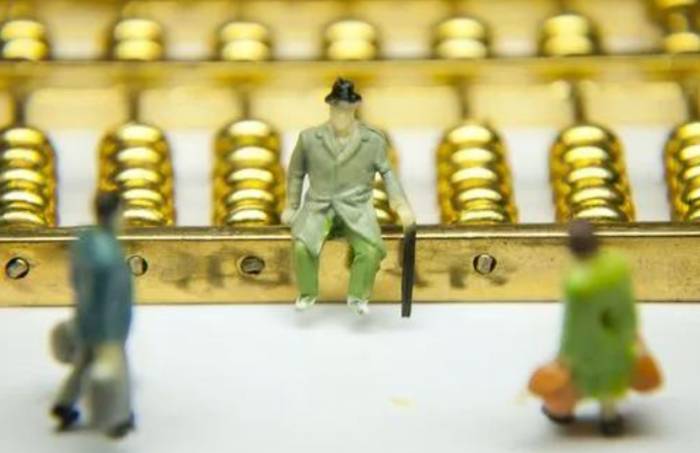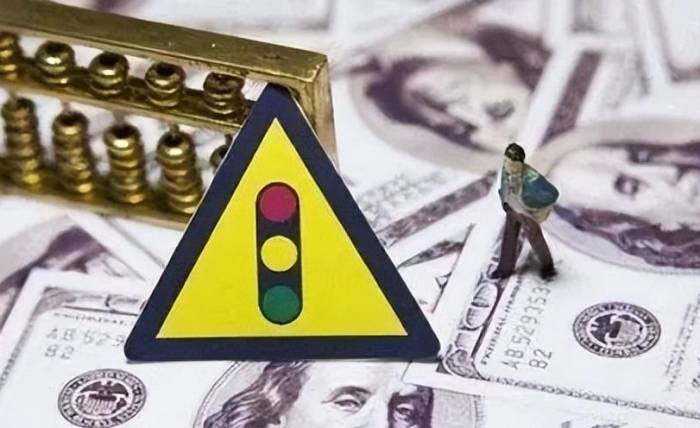At the beginning of this year, the Japanese government established a new tax-exempt system for small investments (NISA) to encourage citizens to "convert savings into investments." Investors can enjoy a certain amount of investment without being taxed at 20% annually by opening a securities account through NISA. However, just three days before this, many investors who entered the Japanese stock market for the first time using the NISA system were severely "mowed down" during the "epic" fluctuations in the Japanese stock market.
The climax of this fluctuation in the Japanese stock market occurred on August 5th. On that day, the Topix index futures and the Nikkei 225 index futures each experienced two circuit breakers. By the close, the Nikkei 225 index had fallen by 12.4%, erasing all gains for the year, and the Topix index had fallen by 12.23%. This was the largest drop for the Nikkei 225 index since October 1987, and the single-day decline set a historical record.
Just one day later, on the 6th, the Nikkei index opened with a comprehensive rise, once surging by more than 3,200 points, surpassing the 2,677.54 points in October 1990, setting the largest intraday gain in history. Investors immediately lamented online about selling too early.
While the Japanese stock market was on a "roller coaster," on the 6th, the yen's exchange rate against the US dollar fell by more than 1%, ending the momentum of the yen's continuous appreciation for five days after the Bank of Japan's interest rate hike last week. On August 5th, the yen touched a new high against the US dollar since January at 144.77. As of the first financial report on the 6th, the yen's exchange rate against the US dollar was reported at 145.19.
Reviewing the fluctuations in the Japanese stock market this time, Professor Chen Zilei, director of the Japanese Economic Research Center at Shanghai University of International Business and Economics, told the first financial network that the market's reaction was too intense, and behind it was a lack of confidence in the Bank of Japan's policy. "The outflow of funds is still caused by panic psychology, which is a lack of confidence in the Japanese economy and central bank policy. At the same time, the Federal Reserve's policy is also not transparent. Against this background, capital first goes to the top, busy clearing, causing chaos, and ultimately triggering the 'butterfly effect' on the 5th." He analyzed, "It needs to be highly concerned that many economic crises in history are caused by panic psychology, so we should be alert to the follow-up effects of the financial market turmoil between the United States and Japan."
Embarrassing interest rate hike timing
The stock market crash and the surge in the yen, the Bank of Japan's "hawkish" on July 31st is undoubtedly one of the fuse. On that day, the Bank of Japan announced an interest rate hike, with the central bank's policy interest rate increased from 0.01% to 0.25%. This is the first time in 15 years and 7 months that the Bank of Japan's policy interest rate has returned to the 0.25% level. At the same time, the Bank of Japan also announced a comprehensive reduction in large-scale bond purchase plans, marking a clear shift from the Bank of Japan's large-scale stimulus policy over the past decade. In March this year, the Bank of Japan ended its negative interest rate policy.
Japanese public opinion also believes that after the Bank of Japan announced an interest rate hike on July 31st, followed by the U.S. government's poor employment statistics report on August 2nd, the linkage between the two led to the Japanese stock market's rare "Black Monday." Some Japanese netizens also said bluntly, "Knowing that the United States will release employment data, why not wait (for interest rate hikes)?"
Regarding the Bank of Japan's interest rate hike this time, Chen Zilei told the first financial network that it was not unexpected, and the yen will definitely appreciate. "The problem is that the data on the operating conditions of Japanese companies and the economic effects after raising wages have not yet come out, so there are also different opinions within the committee. However, as the time for the Federal Reserve to cut interest rates is getting closer and closer, the timing of the interest rate hike is very important for the Bank of Japan. Missing it will only be more passive."
At the previous interest rate meeting of the Bank of Japan, the Bank of Japan's board of directors finally decided to raise interest rates by a vote of 7 to 2. Moreover, four hours before the start of the meeting, the board of directors was still debating whether to raise interest rates. It can be seen that the Japanese government also has a dilemma in the decision to raise interest rates this time."In fact, the Bank of Japan's decision has truly shocked many observers of Japanese central bank policy, including us," he explained, adding that according to various surveys conducted beforehand, everyone believed that the Bank of Japan would wait for clearer data indicators reflecting income and consumption before taking action.
Nagai stated that the Bank of Japan's unexpected move not only reflects the strong desire within the board for the normalization of Japanese monetary policy but also the long-term pressure on the yen's depreciation. "Interest rate changes will affect the Bank of Japan's policy outlook. The long-term weakness of the yen will jeopardize the government's goal of achieving a 'positive feedback loop between wages and inflation.'"
Sakai Sai, Chief Economist at Mizuho Research & Technologies, believes that the Bank of Japan may raise interest rates again within the year, increasing the current policy rate by another 0.25%. "After the Bank of Japan's rate hike, it is expected that there will be a period of increased market volatility, after which the pace of yen appreciation may gradually slow down."
What are the impacts of the yen's rise?
If we look solely at the Bank of Japan's direction of tightening and raising interest rates, in the long term, the yen still has room for appreciation, and Japan's overseas investments will also increase. Enterprises will timely seek overseas investment locations. However, it is important to note that, overall, factors such as the trend of the US dollar, Federal Reserve policy, and the global environment will affect the future trajectory of the yen's exchange rate.
So, in this rapid rise of the yen, who will be the biggest winners and who will be the losers?
Regarding the sharp drop in the Japanese stock market, Tanaka Haruna, a consultant at the Japan Resona Bank, stated that it has obviously weakened the expectations for the upward performance of Japanese export companies. "The feeling is that export companies worried about further yen appreciation are anxiously selling a large amount of dollars." In the fiscal year 2024, many Japanese companies have set their foreign exchange settlement rate at 1 US dollar to 155 yen. Now, the sudden surge in the yen exchange rate will force these companies to revise their earnings expectations downward, which leads investors to worry about their interests being damaged, start selling stocks, and directly cause the Nikkei average to experience the largest drop this year.
In recent years, Japan's major trading companies have performed strongly in overseas markets, largely benefiting from substantial exchange rate differences. In the fiscal year 2023, the average net profit of Japanese listed companies increased by 24%, a significant reason being that the dollars earned from overseas, when converted to yen, resulted in many additional profits due to the exchange rate difference. Therefore, for businesses highly dependent on overseas markets, they must make difficult adjustments in cost control and pricing strategies.
Furthermore, whether the appreciation of the yen will cool down the booming Japanese tourism industry is also worth paying attention to. Data from the Japan National Tourism Organization (JNTO) shows that the number of visitors to Japan in the first half of the year reached 17.78 million, setting a record for the most in a six-month span. Barring any unexpected events, the number of visitors to Japan this year is expected to surpass the annual record of 31.9 million set in 2019. The World Travel & Tourism Council (WTTC) also predicts that 2024 will be a record-breaking year for Japan's tourism industry, with the contribution of the tourism industry to Japan's economy expected to reach nearly 44.6 trillion yen, a 5.7% increase from the peak in 2019, accounting for 7.5% of Japan's GDP.
As the yen rises, the cost for overseas tourists to visit Japan will increase, and their consumption may be affected, increasing the uncertainty faced by Japan's tourism industry. Among the companies that experienced a stock market crash on the 5th, Isetan Mitsukoshi Holdings, Japan's largest department store with a high proportion of duty-free sales profits, ranked third, with a drop of up to 46%.Previously, the depreciation of the Japanese yen raised the cost of imported products such as oil, natural gas, and agricultural and sideline products, which then affected Japanese prices. "High prices are a problem, so many people hope that the yen will appreciate," some Japanese citizens expressed on social media. However, there are also citizens who question whether the prices of goods that have risen will return to their original levels even if the yen appreciates, and there is uncertainty, "When the yen is weak, electricity and gasoline prices can easily rise, but even if the yen appreciates, the prices only decrease to a deceptive extent."
On July 31, at the press conference at that time, Haruhiko Kuroda, the Governor of the Bank of Japan, showed a "hawkish" tone, but still had concerns about whether the Japanese economy could withstand rising interest rates.






























Comments